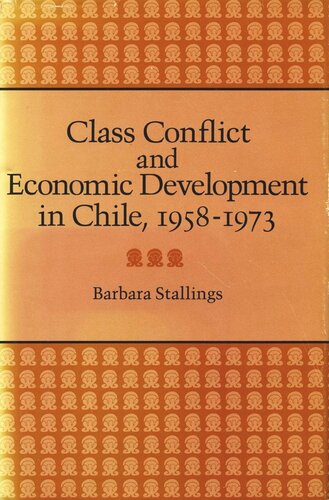

Most ebook files are in PDF format, so you can easily read them using various software such as Foxit Reader or directly on the Google Chrome browser.
Some ebook files are released by publishers in other formats such as .awz, .mobi, .epub, .fb2, etc. You may need to install specific software to read these formats on mobile/PC, such as Calibre.
Please read the tutorial at this link: https://ebookbell.com/faq
We offer FREE conversion to the popular formats you request; however, this may take some time. Therefore, right after payment, please email us, and we will try to provide the service as quickly as possible.
For some exceptional file formats or broken links (if any), please refrain from opening any disputes. Instead, email us first, and we will try to assist within a maximum of 6 hours.
EbookBell Team

0.0
0 reviewsThis account of the interplay of politics and economics in Chile in three successive administrations ending with the 1973 coup suggests that social class plays a major role in determining the outcome of economic policies in Latin America. As the author demonstrates, the nature of the class alliance that controls the state apparatus in Chile, together with the actions of foreign capital, determines not only the type of economic policies followed, but their outcomes as well. A comparison of the three regimes of Jorge Alessandri (1958–64), Eduardo Frei (1964–70), and Salvador Allende (1970–73) is especially important because they represent the main approaches to economic development available to all Third World countries today. The three regimes are compared in terms of policies on property relations, government expenditure, credit, investment, wages, prices, employment, and foreign investment. The outcomes are analyzed through data on economic growth and income distribution. In a concluding chapter, the author comments on the meaning of the Chilean experience for other countries.